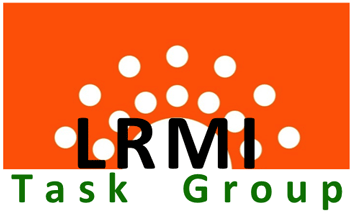Survey-20150701
Handbook: Table of Contents
- ► Governing Board committees: Membership & Finance ◘ Nominations & Bylaws
- ► Technical Board committees: Usage ◘ Standards & Liaisons ◘ Community Specifications
- ► Advisory Board committees: Conferences & Meetings ◘ Education & Outreach
- ► Management: Executive ◘ Directorate
Contents |
Survey Description
The LRMI Task Group (TG[1]) seeks your input on proposed concept definitions for a set of high-level controlled vocabularies (enumerations) listed near the bottom of this page. The concepts will be machine encoded as concept schemes using the W3C's Simple Knowledge Organization System (SKOS[2]). The concepts to be assessed use their proposed U.S. English labels and text definitions (en-US); however, translations of the concept definitions, appropriate labels, and alternative labels in other languages and language subgroups will be supported (e.g., en-US | en-GB | en-CA | fr-FR | fr-CA | ko-KP | etc. ). Upon finalization and publication of the concept definitions, authoritative translations will be solicited by LRMI.
- The seeding of concepts for the draft vocabularies is based in part on community-derived vocabulary terms developed by Common Educational Data Standards (CEDS [3]) through analysis of real-world implementations including a consensus of 13 U.S. state education agencies that formed the Multi-state Tagging Initiative.
- The vocabulary is intended to be a high-level vocabulary of general utility. Local extensions can provide machine-encoded specificity where it is needed to meet local needs.
- Resource Description Framework serializations of the draft vocabularies in W3C's Simple Knowledge Organization System (SKOS-XL; extended label) are available through the Dublin Core Metadata Initiative (DCMI) github[4].
Expected Uses
The expected uses of the concepts enumerated in the controlled vocabularies are primarily, but not solely, intended for use with the properties in schema.org markup of learning resources using the LRMI specification[5].
Survey Instructions
In assessing and commenting, we ask you to focus primarily on the definition of each concept and only secondarily on the label. While the label "represents" the meaning embodied in the concept definition within a particular language group, the appropriate preferred label will vary significantly across language and language subgroups. Therefore, the goal of these controlled vocabulary surveys is to determine the scope, expression and clarity of the concept definitions. We are most interested in discovering language usage that is an impediment to understanding by being ambiguous or suboptimal in an international context.
Suggestions as to alternative language are welcome. For example, the following concept from the vocabulary is potentially problematic:
Concept: administrator
Definition: A district or school level person of authority and responsibility.
The word "district" (or "school district") is a term used in the context of U.S. K-12 public education to denote a subordinate geopolitical administrative unit of the state. The term may be meaningless or misinterpreted outside the U.S.--even in other English-speaking nations. An alternative framing of the definition that is more likely to resonate in an international context might be: "A person with authority and responsibility in the administration of a local school."
As a secondary matter, suggestions as to a more appropriate label for this particular language group (i.e., en-US) can be included in the comments section for each concept.
Available Vocabulary Surveys
- Alignment Type (access survey)
- Educational Audience Role (access survey)
- Educational Use (access survey)
- Interactivity Type (access survey)
- Learning Resource Type (access survey)
- Accessibility API (not yet available)
- Accessibility Control (not yet available)
- Accessibility Feature (not yet available)
- Accessibility Hazard (not yet available)
Questions about Survey?
Questions regarding this draft concept scheme or the LRMI TG process for development of vocabularies may be addressed to Jim Goodell at jimgoodell@qi-partners.com and/or Stuart Sutton at sasutton@dublincore.net.
